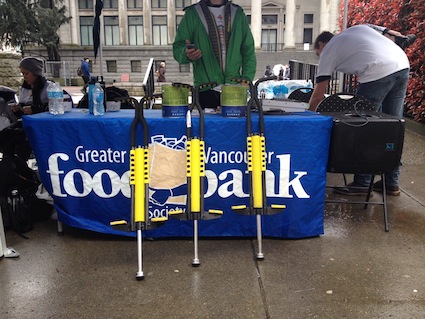Finders & Keepers: How the world’s most powerful consumer is changing everything
This winter we’re cozying up with a few books. And if they’re good reads, we’re going to tell you about them. We're starting with Finders & Keepers, by Spring Advertising Creative Director, Rob Schlyecher.
In Finders & Keepers, Schlyecher tells us that the demographic information - age, gender, education, etc. - that marketers have long relied on to make decisions actually reveals very little about how consumers spend money. Demographic info comes up short because it does nothing to explain how a consumer feels.
There is a better way, according to the author, to understand consumers' purchasing decisions. Based on extensive research done in Australia the findings of which were tested in real estate market in the US, Schlyecher identifies two groups called, not surprisingly, Finder and Keepers. (There are actually three if you count the Finder’s upstart cousin, the Evolving Finder).
Finders value discovery and the time spent in, well, finding. When it comes to a product or company, they like information - they want to know about the provenance of a product and the story of how it was crafted. They value design, innovation, and authenticity. They love sharing the story of their discovery. Price is only a piece of information for the Finder, it’s not the deciding factor for their purchase. And in fact, they may be downright distrustful of a discount.
Keepers, in contrast, are very price sensitive. They like a deal, but they don’t want to spend a lot of time getting it. They value brand highly, especially as it relates to status and established trust in the product they know. They are not particularly adventurous.
How does this work in practice? As just one of many examples, Schlyecher suggests a true Finder who is a chocolate lover would make the extra effort to visit the Thomas Haas Patisserie (a bastion of authenticity and craftsmanship if ever there was one) in an out-of-the-way industrial park tucked behind an automall in North Vancouver. We suppose a Keeper with a chocolate craving would probably be pretty happy picking up whatever's on sale in the grocery aisle.
Schlyecher argues that, for several reasons including Finders not being price sensitive, companies that appeal to Finders can be recession proof. But for those companies going after Keepers based on pricing tactics, it’s ultimately a death spiral (the book offers up the poignant example of Circuit City) - that is, unless you’re Walmart, of course.
Granted, this is a massive oversimplification of Schlyecher’s thesis, but for the in-depth goods on Finders & Keepers (and how it could apply to your own company), we suggest you pick up a copy of the book. It’s a great read.
As a public relations agency, the concept of Finders and Keepers bears thinking about. After all, PR is all about telling a story. And it works best when that story is about innovation, quality, service, and experience. In fact, PR is downright ineffectual if it’s trying to tell a lowest price story. It would seem that PR is made for Finder companies. We’ll certainly be giving the Finders and Keepers philosophy considered thought in the future.


















 Vancouver, BC; (March 3, 2015) Plaza Premium Lounge is pleased to announce the official Grand Opening of its recently upgraded lounge at Vancouver International Airport (YVR). The lounge, one of four Plaza Premium Lounge spaces at YVR, is located in the airport’s new A-B Connector on Level 3 Departures of the Domestic Terminal.
Vancouver, BC; (March 3, 2015) Plaza Premium Lounge is pleased to announce the official Grand Opening of its recently upgraded lounge at Vancouver International Airport (YVR). The lounge, one of four Plaza Premium Lounge spaces at YVR, is located in the airport’s new A-B Connector on Level 3 Departures of the Domestic Terminal.
